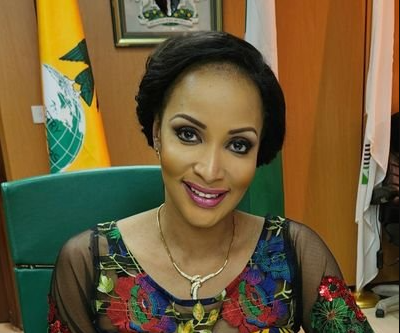By Peter Omopo | August 1, 2025
ACCRA, GHANA – Nigeria and Ghana have commenced high-level diplomatic talks aimed at defusing tensions following viral videos and calls by some Ghanaians for the deportation of Nigerians residing in the country.
The Nigerian Minister of State for Foreign Affairs, Ambassador Bianca Odumegwu-Ojukwu, appealed for calm during a joint press conference with Ghana’s Minister of Foreign Affairs, Samuel Ablakwa, held in Accra on Wednesday.
According to a statement by her Special Assistant on Communication and New Media, Magnus Eze, Odumegwu-Ojukwu was dispatched to Ghana by President Bola Tinubu as a special envoy to assess the situation and reassure Nigerian nationals amid rising concerns sparked by the disturbing videos.
“We are here in the Republic of Ghana on a fact-finding mission as a special envoy of President Bola Ahmed Tinubu due to the recent unrest that has generated anxiety in Nigeria,” she said. “Fortunately, what we have observed is a calm environment. There are no protests in the streets, no burning tyres, no placards calling for deportations.”
The minister attributed the relative calm to the swift intervention by Ghanaian authorities and stressed that the online content, though alarming, did not reflect the actual state of affairs on the ground.
Odumegwu-Ojukwu reaffirmed the deep historical and diplomatic ties between Nigeria and Ghana, urging citizens of both countries to resist inciting rhetoric and misinformation that could reignite old hostilities.
She revealed that her delegation had met with Ghanaian government officials, community stakeholders, and individuals linked to the unrest as part of efforts to build confidence and ease tensions.
The minister also called for the institutionalisation of the long-discussed Nigeria-Ghana Joint Commission as a platform to strengthen bilateral cooperation and foster mutual understanding at both government and grassroots levels.
In his remarks, Ghana’s Foreign Minister, Samuel Ablakwa, assured that the Ghanaian government remains committed to the safety of all residents—both citizens and foreigners. He noted that authorities are actively engaging both the Ghanaian and Nigerian communities to address any lingering grievances.
Ablakwa clarified that recent viral videos do not accurately portray the situation and disclosed that he had personally met with the Nigerian national alleged to be attempting to establish a sovereign kingdom in Ghana—an allegation he said was misleading and misunderstood.
He drew attention to historical tensions between the two countries, including Ghana’s Aliens Repatriation Order of the 1960s and Nigeria’s 1983 expulsion of undocumented West Africans in what became known as the “Ghana Must Go” saga.
“While we have a shared and complex history, it is important that we manage our current relations with wisdom, or risk repeating the painful episodes of the past,” Ablakwa warned.
Both ministers reaffirmed their countries’ commitment to diplomacy, peaceful coexistence, and the promotion of unity across the West African subregion.

